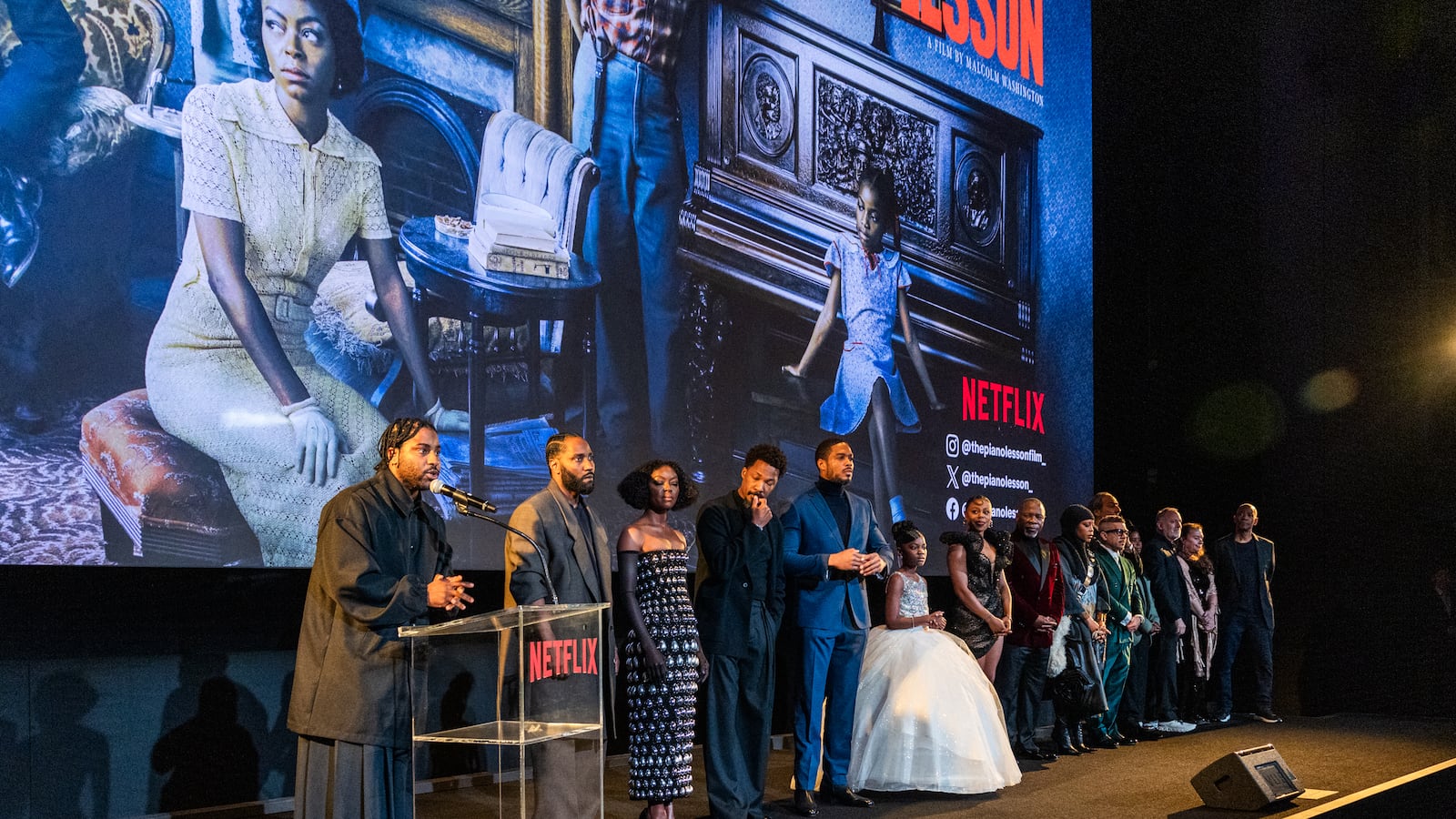I’d only been a high school teacher for a couple of weeks when one of my ninth grade students approached me to apologize. He’d been loud and disruptive in class, sure, but no more than the other 25 or so Brooklyn teens I was trying — and failing — to educate. But, OK, apology accepted.
I turned my attention back to Walter Dean Myers’ “Monster,” the novel I had been teaching, rather unsuccessfully, when the apologetic student then proceeded to punch and kick a classmate. You see, the kid had been apologizing to me because of what he was about to do.
It’s been 20 years now since that awful classroom fight. It’s been 20 years since those ninth graders were assigned (and probably didn’t read) “Monster,” after which I crawled off to the school book room in search of another text for the students to pretend to read. For me to pretend to teach. There, amidst dozens of dusty copies of “David Copperfield” and “Jane Eyre,” I noticed a slim, elegant stack of August Wilson plays. I thumbed through “The Piano Lesson” and then “Fences,” to see if they might work in the classroom. They were, as it turns out, a lifesaver.
A new film version of “The Piano Lesson,” has just opened in theaters and is headed to Netflix. It’s produced by Denzel Washington, directed by his son Malcolm, and stars his other son, John David.
Wilson’s play is about a Great Depression-era family that moves from Mississippi to Pittsburgh during the Great Migration and battles over family ghosts and the value of a piano. “Ain’t no mystery to life,” the character Boy Willie declares in Act II. “You just got to go out and meet it square on.”
By 2004, I’d spent a decade trying to do that. Yet I was still overwhelmed by mysteries. I was working as a journalist, editor, and author, who’d also done some adjunct teaching and written two novels, both of which were represented by agents — both of which received glowing rejections.
But the biggest cosmic challenge of all turned out to be the astronomical cost of health insurance for my family. Then, even the glowing rejections stopped. And so, just months after being accepted into the New York City Teaching Fellows program, there I was every day in front of 100 “high needs” students — 95 percent of them male — at Automotive High School, now known as A-Tech, in Brooklyn.
And I was flailing. It was obvious. The students wouldn’t shut up long enough for me to tell them to shut up more loudly. I opted to teach “Fences” — which centers on Troy Maxson, a former Negro League baseball player living in Pittsburgh and struggling to provide for his family.
The school bells kept on ringing. The students kept on coming. I still couldn’t get them to shut up until …
“Wait! Wait! What’s that?” a student asked about the word “rubbish.”
“Garbage,” I yelled back. “Trash.”
“Troy tryna give his son a job?”
“Yeah. As a rubbish collector.” I paused. “Garbage man.” I told them that’s what my dad had done, too.
“Wait! Wait!” another student said. “So, Troy’s a good dad?”
Without really thinking about it, I just threw the question back at the student.
“Is he? Is Troy a good parent?” Twenty years later, it’s a question I’m still asking my students, and they still can’t stop talking about it.
The volume in the classroom back then didn’t go down much. But at least they were arguing about a play, about what a parent should and should not do. Little did the students know that Troy’s behavior would later raise even harder questions for his wife, Rose, and teenage son, Cory.
Should they forgive Troy – and, if so, why and how? What do we owe our parents? What do we owe our ancestors? How does one begin to confront generational — and national— trauma?
My students, they wanted to talk about it. They never shut up about it.
There would still be outbreaks of chaos in my classrooms, just fewer and fewer as the years went on and I learned how to talk and listen to my students. I heard about their lives, about Brooklyn, about sports and money, family, sins, forgiveness, and history.
I taught Wilson’s “The Piano Lesson” in later years but actually had more luck with “Everyday Use,” an Alice Walker story about similar ideas, about how, precisely, a family should define education and advancement.
I know Alice Walker and August Wilson didn’t write these classics to make a teacher’s life easier. But these astonishing writers helped a generation of Brooklyn students, and one of their teachers, wrestle with some of America’s most terrifying and formidable ghosts.
Tom Deignan has contributed to books such as “Nine Irish Lives” (Algonquin) and to publications, including the Washington Post, the New York Times, and the New York Daily News. He teaches high school and college students in Brooklyn, and he is working on a book about the 1920s.


